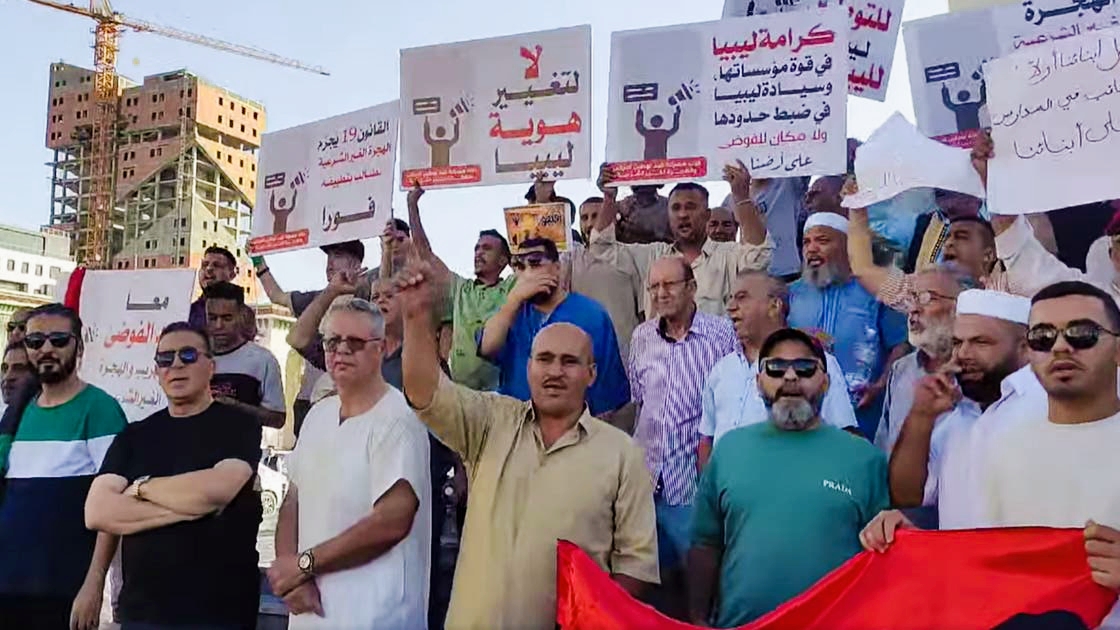Several Libyan cities witnessed a wave of massive protests yesterday, Friday, condemning the increasing numbers of irregular migrants within the country, amid rising popular calls to reject their settlement and expedite their deportation to their home countries.
In the capital, Tripoli, hundreds of demonstrators gathered in Martyrs' Square, raising strong slogans including:
• "Libya is not a place for refugees"
• "No to the settlement of migrants in Libya"
• "Libya for Libyans"
• "No to changing Libya's identity".
Participants demanded that the Libyan authorities take a clear and decisive stance on the issue of migrants, considering their large presence a threat to national identity and the social fabric of the country.
In the city of Misrata, the protests took on a more intense and violent character, as protesters smashed a makeshift market run by African migrants and forcibly expelled those inside, amid calls to permanently close the market and deport everyone in it.
Residents expressed their deep dissatisfaction with what they described as "the escalation of crimes and the spread of weapons" among some migrants, warning of "suspicious and dangerous gatherings" within their neighborhoods.
* A Worsening Crisis and Internal and External Pressures
These popular protests come at a time when Libya is facing increasing local and international pressures to deal with the issue of irregular migration, especially with the doubling of the number of migrants coming from sub-Saharan African countries.
According to many Libyans, their presence is no longer seen as a "temporary passage to Europe," but has turned into a permanent settlement within the country, leading to the emergence of markets and informal neighborhoods outside the control of the state, increasing fears of destabilizing security and social stability.
* Shocking Numbers .. 2.5 Million Foreigners in Libya
According to a statement by the Minister of Interior of the National Unity Government, Imad al-Tarabulsi, the number of foreigners in Libya is estimated at about 2.5 million people, of whom 80% entered the country illegally, without official registration, or paying taxes, or adhering to electricity and water bills.
This number raises significant concerns among the Libyan public, who see the large presence of irregular migrants as an economic and security burden, amid the absence of state oversight in many areas controlled by these migrants.
* Threatened Identity
Protesters in Tripoli, Misrata, and other cities believe that the current situation threatens Libya's national and demographic identity, and they demand that the government stop any attempts to settle migrants and deal seriously with what they describe as "unprecedented chaos" caused by waves of migration in recent years.

